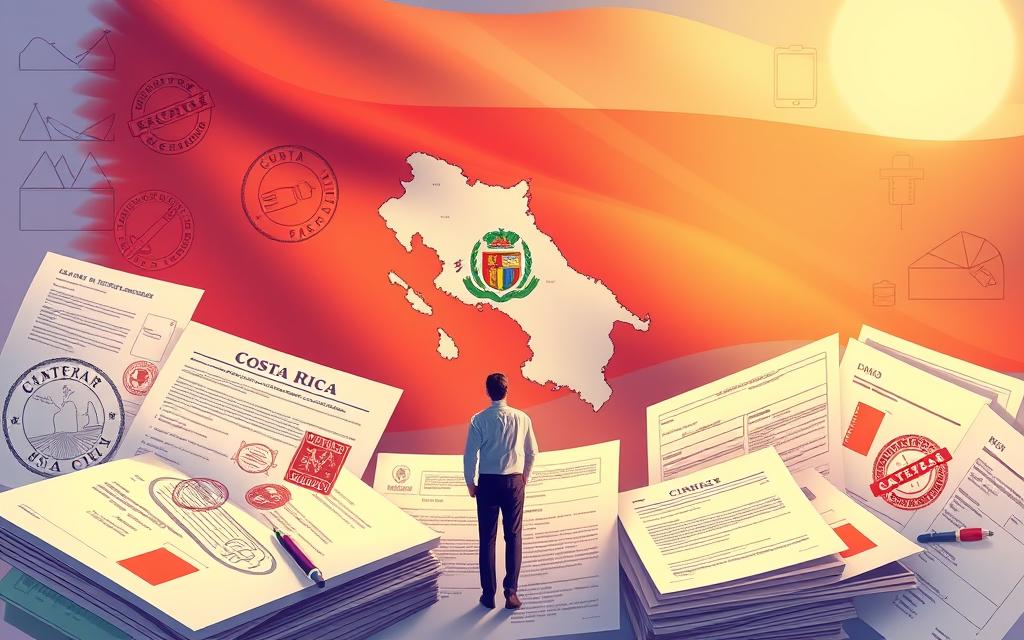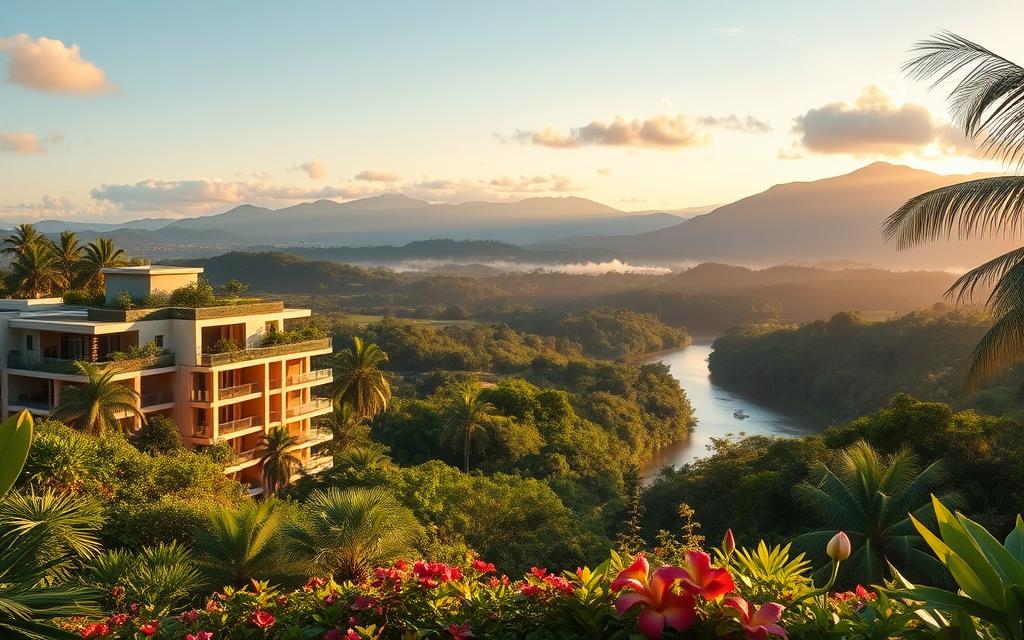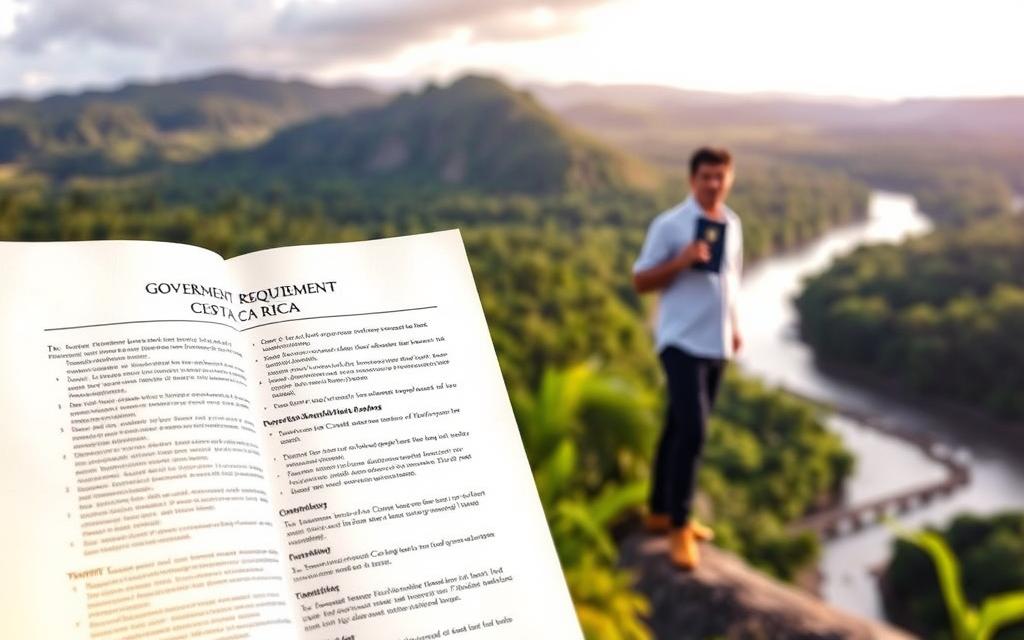How to Become a Costa Rica Citizen: A Step-by-Step Guide

Did you know that Costa Rica is ranked as one of the happiest countries in the world? With its stunning natural beauty, mild climate, and welcoming culture, it’s no wonder many families and individuals are drawn to this vibrant country. Residency here offers access to a high quality of life, making it an attractive destination for those seeking stability and adventure.
Obtaining citizenship in this Central American gem involves a clear process. From securing permanent residency to meeting specific requirements like financial stability and language proficiency, each step is designed to ensure applicants are well-prepared. Proper documentation and understanding the legal procedures are crucial for a smooth transition.
Whether you’re drawn by the lush rainforests, pristine beaches, or the country’s commitment to sustainability, Costa Rica offers a unique opportunity to call it home. In this guide, we’ll walk you through the essential steps to turn your dream of becoming a citizen into reality.
Understanding Costa Rica Residency Options

Costa Rica’s residency programs cater to a variety of lifestyles and financial situations. Whether you’re seeking temporary or permanent stays, the country offers tailored solutions to meet your needs. Two primary pathways—rentista and investment residency—are popular among applicants.
Rentista and Investment Residency Explained
The rentista option is ideal for individuals with a stable income. Applicants must demonstrate a monthly income of at least $2,500, guaranteed for five years. This route is perfect for those who wish to enjoy the country’s benefits without active employment.
For business-minded individuals, the investment residency requires a minimum investment of $150,000 in local ventures. This pathway not only grants residency but also contributes to the country’s economy. Both options provide a stepping stone to permanent residency.
Permanent Residency Opportunities
After maintaining temporary residency for three years, applicants can apply for permanent status. This grants similar rights as citizens, including employment opportunities. The process typically takes six to twelve months, depending on documentation completeness.
Choosing the right residency option depends on your financial profile and long-term goals. For detailed guidance, explore the Costa Rica dual citizenship requirements to ensure a smooth transition.
Meeting the Basic Requirements

Costa Rica’s citizenship process is built on clear, structured requirements to ensure applicants are well-prepared. These prerequisites form the foundation of both residency and eventual citizenship applications. Understanding and meeting these criteria is essential for a smooth transition.
Age, Criminal Record, and Financial Stability
Applicants must be at least 18 years old to qualify. A clean criminal record is non-negotiable, as the country prioritizes safety and integrity. Financial stability is also crucial, with proof of income or savings required to demonstrate self-sufficiency.
For retirees, a minimum monthly income of $1,000 is necessary. Others may need to show bank statements or investment proofs. These financial requirements ensure applicants can support themselves without relying on public resources.
Language Proficiency and Cultural Knowledge
Intermediate Spanish proficiency is mandatory for most applicants. This ensures effective communication and integration into the local community. Those under 65 must also pass a civic and social studies test, highlighting their understanding of Costa Rican culture and history.
Exemptions exist for individuals over 65, but younger applicants must prepare thoroughly. Language and cultural knowledge are key to becoming an active, engaged citizen.
For detailed guidance on these requirements, explore the Costa Rica residency requirements. Proper preparation and documentation will streamline your journey toward citizenship.
Residency Duration and Documentation Essentials

Navigating residency in Costa Rica involves understanding key timelines and documentation. Whether you’re pursuing temporary or permanent status, each step requires careful planning and attention to detail. Properly organizing your documents ensures a smoother application process.
Temporary vs. Permanent Residency
Temporary residency typically lasts two years and can be renewed. This status is ideal for those testing the waters before committing to a long-term stay. After three years of legal residence, applicants can transition to permanent residency.
Permanent residency offers more stability, granting rights similar to citizens. It’s a crucial step toward naturalization, which can be pursued after seven years of legal residence. Understanding these timelines helps you plan your journey effectively.
Key Documents for Your Application
Essential documents include a birth certificate, criminal background check, and proof of income. These must be apostilled or legalized to meet Costa Rican immigration standards. Properly prepared documents demonstrate your eligibility and streamline the process.
Additional requirements may include bank statements, investment proofs, or marriage certificates, depending on your residency category. Organizing these documents in advance can save time and prevent delays. For expert guidance, explore our legal services in Costa Rica to ensure your application is complete.
By focusing on residency duration and documentation, you’ll be well-prepared to take the next steps toward becoming a citizen of this vibrant country.
How to become a Costa Rica citizen Using Residency
Residency serves as the foundation for achieving citizenship in this tropical paradise. Establishing legal residency is the first critical step in the journey toward becoming a citizen. This process involves meeting specific requirements and submitting the necessary documents to immigration authorities.
Step-by-Step Application Process
To begin, gather all required documents, including a birth certificate, criminal background check, and proof of income. These must be apostilled or legalized to meet Costa Rican standards. Proper documentation ensures a smoother application process.
Next, apply for temporary residency, which typically lasts two years and can be renewed. After three years of legal residence, you can transition to permanent residency. This status is essential for those aiming to pursue naturalization.
Once you’ve maintained permanent residency for seven years, you can apply for citizenship. This involves submitting an application, attending an interview, and, if required, passing a citizenship test. Legal advice from authorized service providers can be invaluable during this process.
Common pitfalls include incomplete documentation and missed deadlines. To avoid these, work closely with immigration experts and ensure all paperwork is accurate and up-to-date. For more details, explore our Costa Rica dual citizenship guide.
By following these steps and staying organized, you’ll be well on your way to achieving citizenship in this vibrant country. Patience and preparation are key to a successful application.
Citizenship by Marriage and Special Cases

Marrying a Costa Rican citizen opens a unique pathway to citizenship with streamlined requirements. This process is designed to simplify the journey for foreign spouses, offering reduced residency periods and specific exemptions. Understanding these special cases can help applicants navigate the process more effectively.
Requirements for Spouses of Costa Rican Citizens
Foreign spouses must meet specific criteria to qualify for citizenship. The marriage must be legally recognized in Costa Rica, and the couple must have been married for at least two years. Additionally, the foreign spouse must have resided in the country for a minimum of two years.
Key documents include a valid marriage certificate, proof of cohabitation, and a recent criminal background check. These documents must be apostilled or legalized to meet immigration standards. Proper preparation ensures a smoother application process.
Exemptions and Special Considerations
Certain exemptions apply to spouses of Costa Rican citizens. For example, the standard seven-year residency requirement is reduced to two years. This accelerated timeline makes it easier for foreign spouses to integrate into the country.
Special cases, such as those involving children or long-term relationships, may also qualify for additional considerations. Working with immigration experts can help applicants understand these unique pathways and ensure compliance with all requirements.
By focusing on these special cases, foreign spouses can achieve citizenship more efficiently. Proper documentation and legal guidance are essential for a successful application.
Navigating the Naturalization Process
The naturalization process in Costa Rica is a significant milestone for those seeking full citizenship rights. It marks the transition from residency to becoming an official citizen of the country. This journey involves meeting specific criteria, including language proficiency, cultural knowledge, and a thorough understanding of Costa Rican history and laws.
To succeed, applicants must prepare diligently for the citizenship test and interview. These steps are designed to ensure that individuals are well-integrated into the country’s social and cultural fabric. Proper preparation can make all the difference in achieving your goal.
Preparing for the Citizenship Test and Interview
The citizenship test covers essential topics such as Costa Rican history, government structure, and cultural values. Applicants must also demonstrate intermediate Spanish proficiency. Study resources like the Sikua textbook and online guides can help you prepare effectively.
For the interview, practice common questions and scenarios to build confidence. Ensure all required documents, such as your birth certificate and criminal background check, are organized and ready. Proper documentation is key to a smooth process.
Understanding the country’s laws and cultural values is crucial. This knowledge not only helps with the test but also fosters a deeper connection to your new home. For more detailed guidance, explore our Costa Rica dual citizenship guide.
Finally, manage anxiety by staying organized and practicing regularly. With the right preparation, you’ll be ready to take this important step toward becoming a citizen of Costa Rica.
Benefits and Opportunities of Costa Rican Citizenship
Costa Rican citizenship provides access to a range of civic and economic advantages. From voting rights to property ownership, the privileges of being a citizen are extensive. This status not only enhances your quality of life but also opens doors to global opportunities.
Civic Rights and Social Services Access
As a citizen, you gain the right to vote in national elections, shaping the future of the country. You also gain access to Costa Rica’s robust social services, including healthcare and education. The country invests heavily in these areas, ensuring a high standard of living for its residents.
Citizenship also grants eligibility for government programs and scholarships. These resources support personal and professional growth, making it easier to thrive in this vibrant nation. Whether you’re pursuing higher education or seeking healthcare, these benefits are invaluable.
Property Ownership and Economic Opportunities
Citizenship simplifies property ownership, allowing you to invest in real estate without restrictions. This is particularly appealing for those looking to establish long-term roots in the country. The real estate market offers diverse opportunities, from beachfront properties to urban homes.
Economically, citizenship opens doors to business ventures and employment opportunities. The country’s stable economy and skilled workforce make it an attractive destination for entrepreneurs. Additionally, dual citizenship enhances global mobility, with visa-free travel to over 140 countries.
By becoming a citizen, you unlock a world of economic and personal growth. The benefits extend beyond borders, offering a secure and prosperous future in this beautiful country.
Conclusion
Achieving citizenship in Costa Rica is a rewarding journey that offers both personal and practical benefits. By following the step-by-step process—from securing residency to meeting language and cultural requirements—you can successfully integrate into this vibrant country. Proper documentation and adherence to legal procedures are essential for a smooth transition.
The benefits of becoming a citizen are significant. From access to social services and visa-free travel to over 150 countries, the advantages extend beyond borders. Whether you’re drawn by the country’s natural beauty or its commitment to sustainability, Costa Rica provides a stable and enriching environment.
With proper preparation and patience, the process is achievable. Take the next step toward making this country your permanent home. Start by gathering the necessary documents and seeking expert guidance to ensure your application is complete and accurate.


